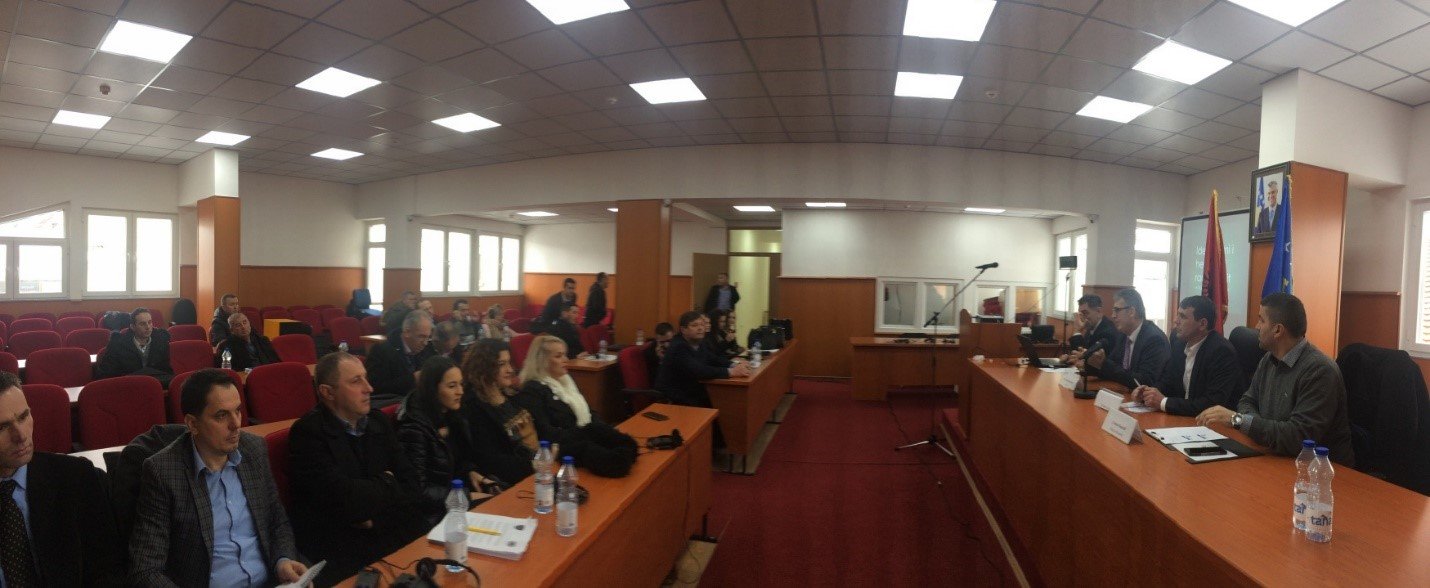
This training followed the previous formats in terms of content and delivery: two experts: Mr.Agim Musliu, security experts, and Mr.Florim Shatrolli, Representative of the Police Department of Anti-Terrorism. Their presentations covered the themes, concepts, theories and research outcomes of early identification, initial signs – pull and push factors, resilience and the role of community and local authorities in building and strengthening individual resilience; the crucial role of Education and Media in prevention and resilience. The police representative was focused on explaining the practical relevance of the theoretical approaches in explaining the risk and resilient factors, the role and consequences of certain interpretations or misinterpretations of the identification signs of potential radicalized individuals; the coherence between the overall views and judgments in the communities and public about the phenomena of violent extremism and the prevalence of real cases; the roles, responsibilities and impact that the community (parent-child-school-community) in addressing the issue and cooperating with the relevant authorities.
The discussion following the presentation was focused on question of the risks involved in creating certain misconceptions because of the potential generalization of the life styles and other characteristics portrait as early signs of radicalization. Participants were also interested to learn if people can expect privacy protection if they report potential risk cases, and if the detained individuals are treated with dignity and respect from the security authorities. The presenting experts answered these questions and dilemmas by fist: acknowledging the risk of overgeneralization of certain portrait features and that a critical mindset is required to ensure the right to associate with certain beliefs systems and maintain the lifestyle of their choice (as long as it doesn’t risks anyone else). Also, the Police representative ensured participants that the security institutions fully comply with the law requirements of respecting the individual dignity of the detained and treating them as humanly as possible – because this is also important for their derecalization and resocialization process.